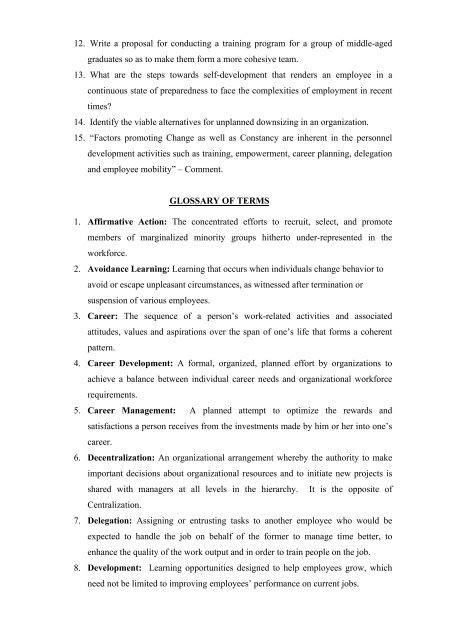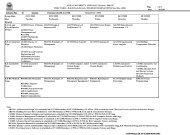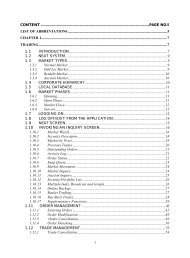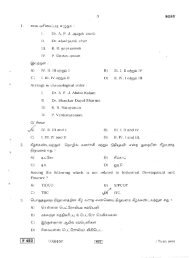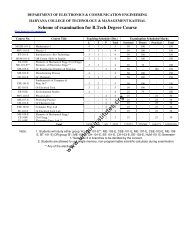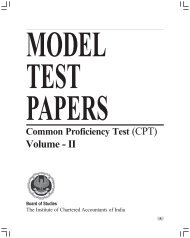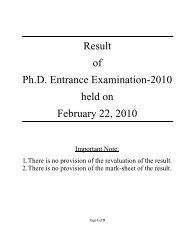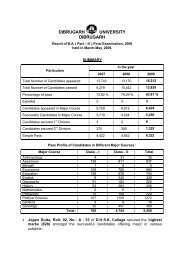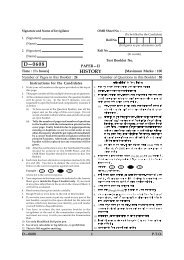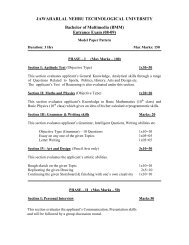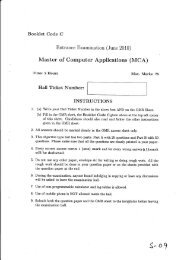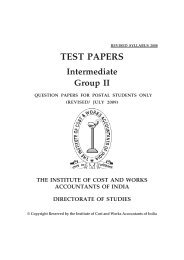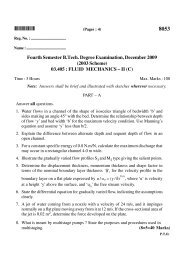UNIT – I Lesson 1 HRM – AN OVERVIEW Lesson Outline Nature of ...
UNIT – I Lesson 1 HRM – AN OVERVIEW Lesson Outline Nature of ...
UNIT – I Lesson 1 HRM – AN OVERVIEW Lesson Outline Nature of ...
You also want an ePaper? Increase the reach of your titles
YUMPU automatically turns print PDFs into web optimized ePapers that Google loves.
12. Write a proposal for conducting a training program for a group <strong>of</strong> middle-aged<br />
graduates so as to make them form a more cohesive team.<br />
13. What are the steps towards self-development that renders an employee in a<br />
continuous state <strong>of</strong> preparedness to face the complexities <strong>of</strong> employment in recent<br />
times?<br />
14. Identify the viable alternatives for unplanned downsizing in an organization.<br />
15. “Factors promoting Change as well as Constancy are inherent in the personnel<br />
development activities such as training, empowerment, career planning, delegation<br />
and employee mobility” <strong>–</strong> Comment.<br />
GLOSSARY OF TERMS<br />
1. Affirmative Action: The concentrated efforts to recruit, select, and promote<br />
members <strong>of</strong> marginalized minority groups hitherto under-represented in the<br />
workforce.<br />
2. Avoidance Learning: Learning that occurs when individuals change behavior to<br />
avoid or escape unpleasant circumstances, as witnessed after termination or<br />
suspension <strong>of</strong> various employees.<br />
3. Career: The sequence <strong>of</strong> a person’s work-related activities and associated<br />
attitudes, values and aspirations over the span <strong>of</strong> one’s life that forms a coherent<br />
pattern.<br />
4. Career Development: A formal, organized, planned effort by organizations to<br />
achieve a balance between individual career needs and organizational workforce<br />
requirements.<br />
5. Career Management: A planned attempt to optimize the rewards and<br />
satisfactions a person receives from the investments made by him or her into one’s<br />
career.<br />
6. Decentralization: An organizational arrangement whereby the authority to make<br />
important decisions about organizational resources and to initiate new projects is<br />
shared with managers at all levels in the hierarchy. It is the opposite <strong>of</strong><br />
Centralization.<br />
7. Delegation: Assigning or entrusting tasks to another employee who would be<br />
expected to handle the job on behalf <strong>of</strong> the former to manage time better, to<br />
enhance the quality <strong>of</strong> the work output and in order to train people on the job.<br />
8. Development: Learning opportunities designed to help employees grow, which<br />
need not be limited to improving employees’ performance on current jobs.


